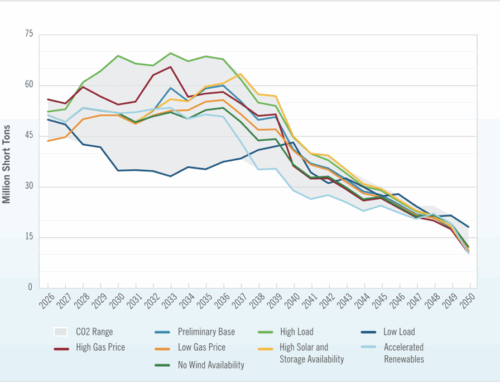What Germany’s $41B investment in space could mean for Europe
October 1, 2025
Germany will invest 35 billion euros ($41.1 billion) into defense space technologies within the next five years — an unprecedented amount for any European country. The decision, made in response to rising tensions with Russia, has been hailed a “watershed moment” for the German and European space sector, and experts say could spur a new era in European space cooperation.
Germany’s Minister of Defense, Boris Pistorius, announced the funding initiative on Thursday, Sept. 25, at the Federation of German Industries Space Congress in Berlin.
The funding is expected to cover sovereign German infrastructure and not go toward projects coordinated on the European level.
Although few details have been made available, Pistorius pointed to a series of defense-related space programs in his speech including communication satellite constellations, spy satellites, space situational awareness radars, launchers and guardian satellites to protect against attacks in space.
The funding, to be allocated by 2030, matches the five-year budget of the European Space Agency (ESA), to which Germany is the biggest contributor. Perhaps more importantly, experts said, the initiative represents a major shift in Germany’s attitude to space defense but also a game-changing moment for the German and European space industry, which is expected to fulfil the bulk of the contracts.
“For the very first time, this is a very clear signal that the relevance of space has been understood by the German Ministry of Defense, which has not been the case i n the past,”
Sven Meyer-Brunswick, a venture investor at Munich, Germany-based, Alpine Space Ventures, told SpaceNews. “This will be a substantial push for the industry. It’s going to be distributed over a very short period of time. The industry will have to roll up their sleeves.”
Europe has historically invested significantly less into space defense infrastructure than the United States and has for decades been comfortable relying on U.S. systems. However, the Trump administration’s fluid stance toward Ukraine and its wavering support for Europe in the war against Russia has prompted intense discussions about the need to step up investment.
Pierre Lionnet, the managing director of ASD Eurospace, the trade association of the European space industry, said Germany has previously been dedicating around 200 million euros per year for military space programs. The announcement, he told SpaceNews, “sends a strong signal to the space industry” that there’s money worth competing for in German government contracts.
“In 30 years working in the space sector I have never seen any message that strong towards increased space defense capabilities in Europe,” Lionnet said.
Investing in European startups
Meyer-Brunswick, who called the investment a “watershed moment” for Germany, said the underinvestment in space defense technology has for years hindered the European space sector, making it hard for European space startups to raise funding to scale. As a result, many promising space companies conceived in Europe have been relocating to the U.S. to be able to compete for U.S. defense contracts, he said. That dependency might now change.
“For most of the commercial companies there has never been a real scalable market in Europe,” Meyer-Brunswick said. “The market happened in the United States because the first customers tend to be on the military side before commercial customers are adopting solutions. But this is changing, we believe, completely with that announcement.”
ESA administers a space program focused on science and civilian applications and also has programs to foster start-up development. The agency — a partnership among 23 European nations with an annual budget of roughly 7 billion euros — follows complicated procurement rules, which are not conducive to help the start-ups ecosystem to truly grow, Meyer-Brunswick said. The European Union, which is not directly linked to ESA, also has its own space budget, which is significantly smaller than ESA’s. In the 2021 to 2027, the EU was investing around 15 billion euro into space developments, including the 10.6 billion euro IRIS² communication constellation, the continent’s response to Starlink. The EU’s lengthy procurement cycle and preference for established prime contractors has been criticized by the European space small- and medium-sized enterprises and start-ups for hindering innovation. Meyer-Brunswick said that the new German space defense budget will finally allow the newcomers their chance to grow and shine.
“This kind of budget allows [Germany] to procure in parallel and just find who is the fastest supplier to get certain capabilities,” he said. “It’s not a budget where you are picking a vendor and wait how that vendor will deliver. This will be very positive for the startup landscape.”
National versus European priorities
Independent satellite and telecommunications analyst Christian von der Ropp told SpaceNews via email the investment might signal Germany’s dissatisfaction with the traditionally slow and cumbersome delivery of pan-European space projects. Especially, he said, Germany may no longer be willing to bet on IRIS². Approved in 2022, the constellation is expected to begin launching in 2029, but Von der Ropp said the project is facing increasing criticism for delivering too little too late. To be built by a consortium of Europe’s largest satellite manufacturers led by Airbus and Thales Alenia Space, IRIS² is seen by some to be at risk of conflicts of interests and inefficiencies in delivery, von der Ropp said.
“Unlike a centrally steered EU scheme such as IRIS², a national program allows for competitive tenders, real cost discipline, clear lines of accountability and faster implementation — instead of locking taxpayers into long-term state-monopoly projects,” von der Ropp said. “This initiative sends a strong signal: Germany is saying no to IRIS² as the sole vision from Brussels and yes to sovereign strategic infrastructure that we can shape and control ourselves. What is needed is not more bureaucracy but faster progress — and that requires competition, innovation, and responsibility.”
Von der Ropp advocated for a proliferated system of meshed constellations modelled after the U.S. Space Development Agency’s Proliferated Warfighter Architecture program.
Lionnet thinks the new German developments will complement rather than replace IRIS² and other pan-European cooperations.
“In the past two decades, increased investment by the [EU] in space programs (with Copernicus, Galileo and now IRIS²) has been leveraged by increased investment in national activities,” Lionnet said. “So, there may be a similar effect with IRIS², amplified by the strategic pressure the conflict in Ukraine is putting on European countries.”
Meyer-Brunswick expects other European powers to soon follow Germany’s example and announce their own substantial funding injections into sovereign defense infrastructure projects.
“If Germany assumes this kind of leadership role, I do not think that France, Poland or Italy will just sit there and watch,” he said. “They will probably ramp up their own budgets as well, which will further help build the European space technology market.”
First hints of such developments have already been seen over the past months with multiple European countries including Poland, Portugal, the Netherlands and Finland announcing purchases of Earth observation satellites for military purposes. Discussions within the EU have also been ongoing to increase the European space budget to over 60 billion euros for the next budgetary period.
Search
RECENT PRESS RELEASES
Related Post




